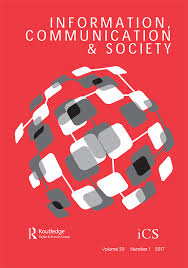Abstract
Theorizing information flows is at the heart of traditional communication theories such as the two-step flow of communication and the concept of opinion leadership. Social media have fundamentally altered how information reaches people. This study examines opinion leadership in social media networks and argues that opinion leaders may no longer need to rely on information provided by the media if they have access to first-hand information. To test this assumption empirically, we used data from the 2015 United Nations Climate Change Conference (COP21). Attendees of the conference had direct information about what was happening, which they were able to share live with their followers via social media. We used geo-located tweets to identify Twitter users who attended the COP21 summit. We then located these users in a data set of tweets that were collected based on the main conference hashtag (#COP21) and represent the wider social media debate on the conference. Our results, which are based on network analysis measures and Twitter user data, show that COP21 participants were more central actors compared to the average user in the network, and that they were more likely to have brokering positions. They were also more involved in the debate and received more attention from other users. We used automated content analysis to divide COP21 participants into different actor types and performed the analysis by actor group. The results show only minor differences across the actors and support the robustness of our analysis.

Walter, Stefanie; Brüggemann, Michael (2018): Opportunity makes opinion leaders. Analyzing the role of first-hand information in opinion leadership in social media networks. In Information, Communication & Society, pp. 1–21. Available online at https://doi.org/10.1080/1369118X.2018.1500622.
